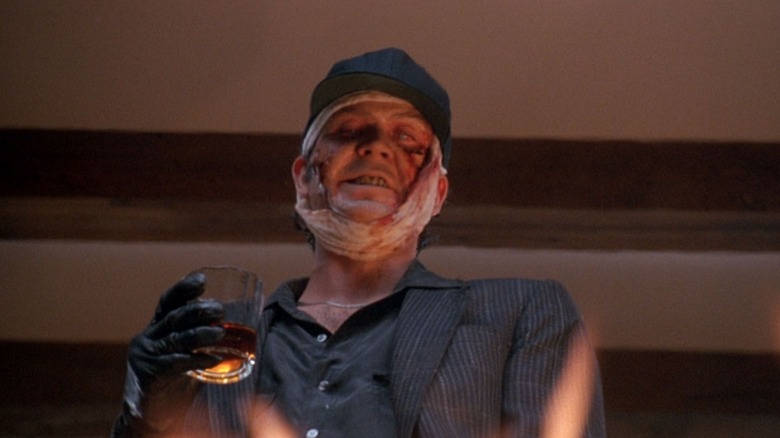After Stephen King revealed “Carrie” in 1973, Brian De Palma’s eponymous adaptation introduced it to life to stark, harrowing impact. Though King had already amassed a following by then, De Palma’s movie undoubtedly contributed to the novel’s (and the writer’s) rising recognition. After 4 regular years of writing compelling tales, King struck gold with “The Shining,” which nonetheless stays probably the most widespread tales related to the grasp of horror. Infused with private components from King’s life, “The Shining” tackles the cabin fever trope with taut mastery over suspense and pacing, the place the psychological and the supernatural meet to kind a riveting story.
Commercial
A 12 months later, King savored success once more with “It,” which might be thought-about a milestone entry within the pulp horror style that we take as a right right now. That is additionally the juncture when King virtually stopped writing extra horror, as he was plagued with self doubt and thought of himself “not a lot of a author” however “a hell of an elaborator” (through TIME). These sentiments don’t replicate goal reality, in fact, however each inventive has second-guessed their expertise in some unspecified time in the future, with King being no exception. This spell of self-doubt (fortunately) didn’t final lengthy, however King needed to show to himself that he nonetheless had the juice. What higher method to gauge folks’s genuine reactions to at least one’s craft than to jot down beneath a pseudonym?
Commercial
Richard Bachman was the title King selected to jot down beneath, which he used to pen many tales, together with the extremely controversial “Rage” and the dystopian thriller “The Working Man” (which obtained a free online game adaptation for Commodore 64, for some motive). Nonetheless, King’s hyperlink to Bachman was outed in 1985 by one Steve Brown, a bookstore clerk who clocked the similarities between King and Bachman’s writing types. There’s rather more to this pseudonym story, so let’s check out the small print.
Stephen King used the Bachman pseudonym to publish extra books
After King was outed as Bachman, the writer confirmed that he was certainly utilizing this fake id and clarified some particulars on his official web site. King defined that the publishing trade on the time had an unstated rule about releasing one guide per 12 months, working beneath the idea that most people would not be open to 2 or extra releases from the identical writer. King acknowledges that it is not strictly true, citing mainstream style writers like Danielle Metal, who “normally publishe[d] two books a 12 months.” Nonetheless, to bypass this perceived problem, King selected the Bachman pseudonym on a whim throughout a telephone name. That is what he needed to say about it:
Commercial
“I adopted Richard Bachman and that was what made it attainable for me to do two books in a single 12 months […] The title Richard Bachman truly got here from once they [the publishers] known as me and stated ‘we’re able to go to press with this novel, what title lets placed on it?’ […] there was a novel by Richard Stark on my desk so I used the title Richard and that is sort of humorous as a result of Richard Stark is in itself a pen title for Donald Westlake, and what was taking part in on the report participant was ‘You Ain’t Seen Nothin’ But’ by Bachman Turner Overdrive, so I put the 2 of them collectively and got here up with Richard Bachman.”
Earlier than King was recognized as Bachman, he juggled these twin identities to pen extra books: “The Lengthy Stroll” got here after “The Stand,” “Roadwork” was written after “Firestarter” and so forth. To make the Bachman books seem distinct, King cooked up some biographical particulars in regards to the writer, who apparently served within the Coast Guard and the Service provider Marine for years, ultimately settling in New Hampshire as a dairy farmer. Minute particulars had been added to make this particular person appear actual, such because the unintentional dying of Bachman’s youngster (!) and well being problems that the writer skilled. As soon as King and Bachman had been confirmed to be one and the identical, a last truth was added to the latter’s biography: Bachman’s dying attributable to “most cancers of the pseudonym.”
Commercial
Though King’s Bachman stint was comparatively short-lived, it’s an integral side of King’s authorial journey because it allowed him to jot down with out the added strain of public expectations. In case you wish to learn one thing enjoyable in regards to the King-Bachman connection, I like to recommend studying King’s “The Darkish Half,” which takes a fictional method to this id break up and situates it inside a horror premise. Great things.


